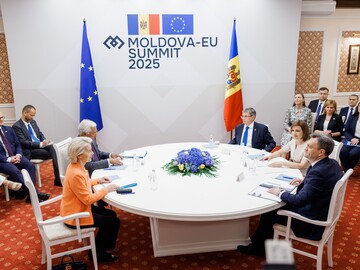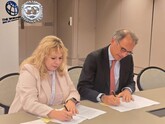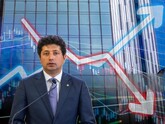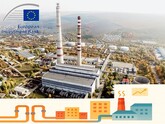
The European Commission will allocate €270 million to Moldova as preliminary funding from the €1.9 billion EU Growth Plan
This was announced by European Commission President Ursula von der Leyen during the first EU-Moldova summit held in Chisinau on July 4, where the parties agreed to deepen cooperation in the interests of Moldovan and EU citizens, discussed EU accession and related reforms, economic growth, and cooperation in the field of security and defense, including countering hybrid threats. During the summit, the President of the European Commission announced the allocation of €270 million in pre-financing from the €1.9 billion EU Growth Plan for Moldova to support the country's reforms and bring its economy closer to the EU single market. According to her, these payments will, among other things, enable the construction of a new regional hospital in Balti, the modernization of the centralized heating system in Chisinau, and lower electricity and gas bills for Moldovan residents. Overall, the Growth Plan will support road improvements, school modernization, new hospitals, small business growth, and the protection of Moldova's cultural heritage. These investments underscore the EU's strong commitment to Moldova's success. Ursula von der Leyen also announced that faster and cheaper bank transfers in euros will be available from October 5, thanks to Moldova's inclusion in the Single European Payment Area (SEPA), approved in March by the member states. The head of the European Commission also proposed integrating Moldova into the EU roaming zone from January 1, 2026, noting that the “Roam Like at Home” initiative will allow Moldovan citizens to make calls, send text messages, and use mobile data from Moldovan numbers while traveling in any of the 27 EU countries without paying roaming charges. The leaders of Moldova and the EU also agreed to step up efforts to counter ongoing hybrid and cyberattacks by Russia and its proxies aimed at destabilizing the country ahead of parliamentary elections in September. The EU reaffirmed its assistance in ensuring Moldova's resilience, including through the EU Partnership Mission in Moldova and support for the Moldovan Strategic Communications and Combating Misinformation Center, which is tasked with identifying and exposing Russian disinformation. The leaders stressed the need for clear communication on the benefits of EU integration and emphasized the importance of strengthening measures to fight corruption and ensure the integrity of the upcoming parliamentary elections in Moldova. Ursula von der Leyen recalled that negotiations on Moldova's accession to the EU were opened a year ago, a Growth Plan for Moldova was agreed nine months ago, and eight months ago, Moldovan citizens enshrined their European future in the country's Constitution in a referendum. The President of the European Commission noted that Moldova is making progress in the accession process, so the EU is ready to open negotiations with Moldova on the first cluster, which concerns fundamental values. “And we look forward to the early opening of all chapters of the accession negotiations with Moldova,” said Ursula von der Leyen. According to her, Europe admires Moldova's struggle for democracy. “Like all strong families, we support each other when it matters most. Moldova's place is with us, in our European family. The European Union is already here. It is in the minds and hearts of the people,” said the head of the European Commission. She noted that the EU will defend the freedom, democracy, identity, and security of Moldova, which has shown that it is also a reliable security partner. “We look forward to welcoming you to our Union. That is why, in parallel with the accession negotiations, we are already bringing your economy closer to ours,” said the head of the European Commission. EU documents note that relations with Moldova are at a record high as the country moves forward on its path to the EU. In June 2022, Moldova was granted candidate status. The European Council decided to start accession negotiations with Moldova in December 2023. The first intergovernmental conference, which officially opened the accession negotiations, took place in June 2024. In October 2024, Moldovan citizens decided to enshrine their European future in their country's Constitution. On June 4, 2025, the EU-Moldova Association Council emphasized the joint efforts of the EU and Moldova to accelerate integration in various policy areas, in particular to expand access to the EU single market. It was stressed that the EU supports Moldova through political, financial, and technical assistance. In March 2025, the European Union adopted the EU Growth Plan for Moldova worth €1.9 billion, the largest EU financial assistance package since Moldova's independence, which supports the reforms necessary for Moldova's accession to the EU and has the potential to double Moldova's economy in the next decade, transforming the lives of Moldovan citizens. Earlier this year, the European Commission and Moldova agreed on a two-year Comprehensive Energy Independence and Sustainability Strategy to decouple Moldova from unreliable Russian energy supplies and fully integrate it into the EU energy market. Under this Strategy, total support for Moldova will amount to €250 million. // 07.07.2025 – InfoMarket.







